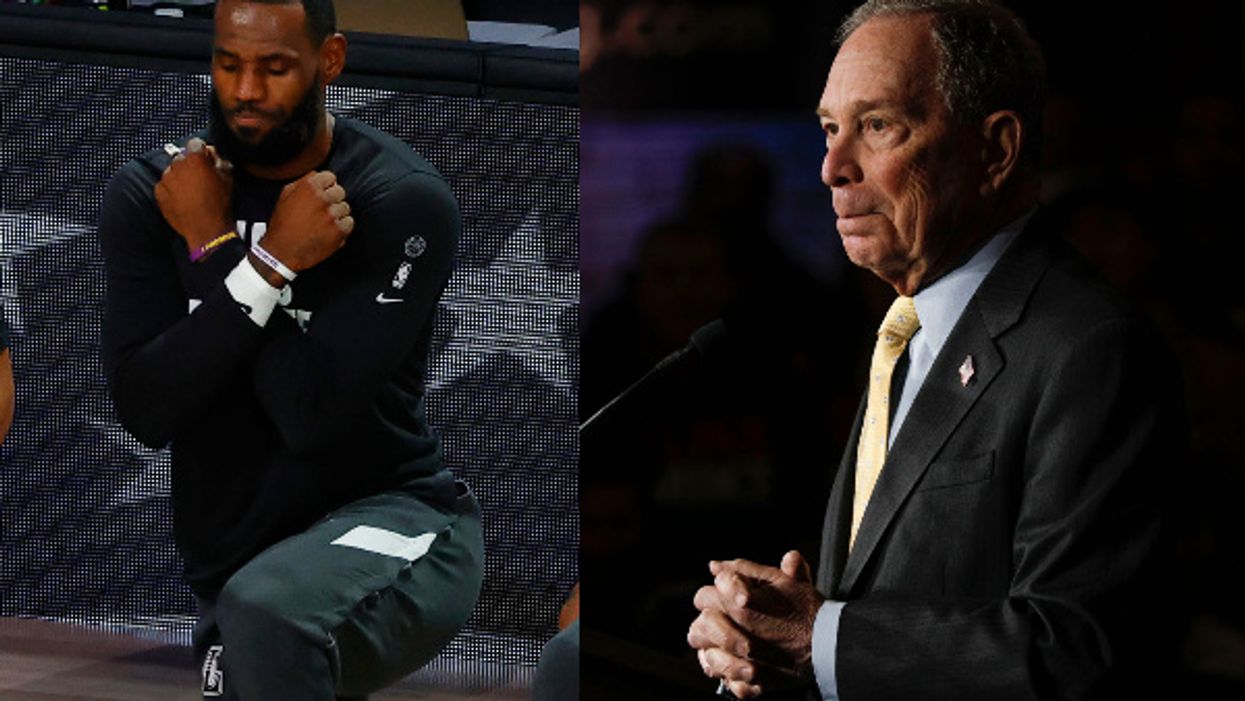
Kevin C. Cox/Bill Pugliano/Getty Images

A number of celebrities donated to the fund that raised $27 million to pay fines of felons so they could vote
Nearly 13,000 felons in Florida could be eligible to vote in the 2020 election after a fund backed by celebrities and other donors raised tens of millions to pay their fines.
In 2018, Florida voters passed a ballot initiative on Florida Amendment 4, the Voting Rights Restoration for Felons Initiative. Florida Amendment 4 restored the voting rights of Floridians with felony convictions. However, the Republican-controlled Florida Legislature passed a law requiring convicted felons to fulfill all the terms of their sentence before they can vote. This includes completing "prison or jail time; parole, probation, or other forms of supervision; and payment of the total amount of all fines, fees, costs, and restitution ordered as part of the felony sentence," according to the Florida Department of State.
The nonprofit Florida Rights Restoration Coalition raised funds to pay the fines of the Florida felons so that they could vote.
In July, Los Angeles Lakers star LeBron James reportedly donated $100,000 to the Florida Rights Restoration. Billionaire and former Democratic presidential candidate Michael Bloomberg raised more than $16 million for the fund in September. Other celebrities who donated to the Florida Right Restoration Coalition include Michael Jordan, John Legend, and Steven Spielberg. MTV, Comedy Central, VH1, Ben & Jerry's, Levi Strauss & Co, the Miami Dolphins, the Orlando Magic, and the Miami Heat also made donations.
The donations reportedly will enable thousands of felons to vote in the presidential election, according to analysis by the Tampa Bay Times, Miami Herald, and ProPublica.
Across the state, where the coalition used contributions from celebrities and other donors to pay about $27 million in fines and fees for about 40,000 felons, that pattern could translate to about 12,800 eligible voters if the proportion is consistent and they don't owe other court debts.
The report noted that "the modest increase in eligible felons falls far short of expectations," but added that the felon voters "could be large enough to make a difference in a key state where polls indicate that the presidential contest is once again a toss-up."
According to RealClearPolitics, the latest average of presidential election polls for Florida shows Joe Biden with a slim 0.9-point advantage over President Donald Trump.
The report added that the "newly eligible voters in the four counties likely skew toward the Democratic presidential candidate, former Vice President Joe Biden." The analysis noted that "about 68% are registered Democrats."
The report stated that in Florida's largest four counties, there were "at least 80% of felons whose fines and fees were paid are nonwhite — including 74% who are Black."
The report estimated that there are between 50,000 and 70,000 felons who have registered to vote since Amendment 4 went into effect in early 2019.
Bloomberg allegedly wrote a memo about the plan to pay the fines of felons so that they could vote, as reported by the Washington Post on Sept. 22.
"We know to win Florida we will need to persuade, motivate and add new votes to the Biden column," according to a memo from Bloomberg. "This means we need to explore all avenues for finding the needed votes when so many votes are already determined."
Florida Gov. Ron DeSantis (R) quickly responded by directing Florida Attorney General Ashley Moody (R) to look into the memo. Moody wrote a letter to the FBI and the Florida Department of Law Enforcement.
"After preliminarily reviewing this limited public information and law, it appears further investigation is warranted," Moody wrote. "Accordingly, I request your agencies further investigate this matter and take appropriate steps as merited."
During a Fox News' "Fox & Friends" interview on Sept. 24, Moody said, "When you look at the memo and what was alleged, when you hear words like we need to get this done, investing money to targeted particular group of voters that may be predisposed to vote a certain way, that raises concerns that you are directly influencing or even indirectly giving money to persuade votes to go a certain way."
"That doesn't matter what party it is that triggers Florida law. Under Florida law, you cannot directly or indirectly give anything of value to persuade or entice a vote," she added.
As of last week, the Florida Department of Law Enforcement told the Tampa Bay Times that the case was a "preliminary inquiry" and has not been elevated to a full investigation.